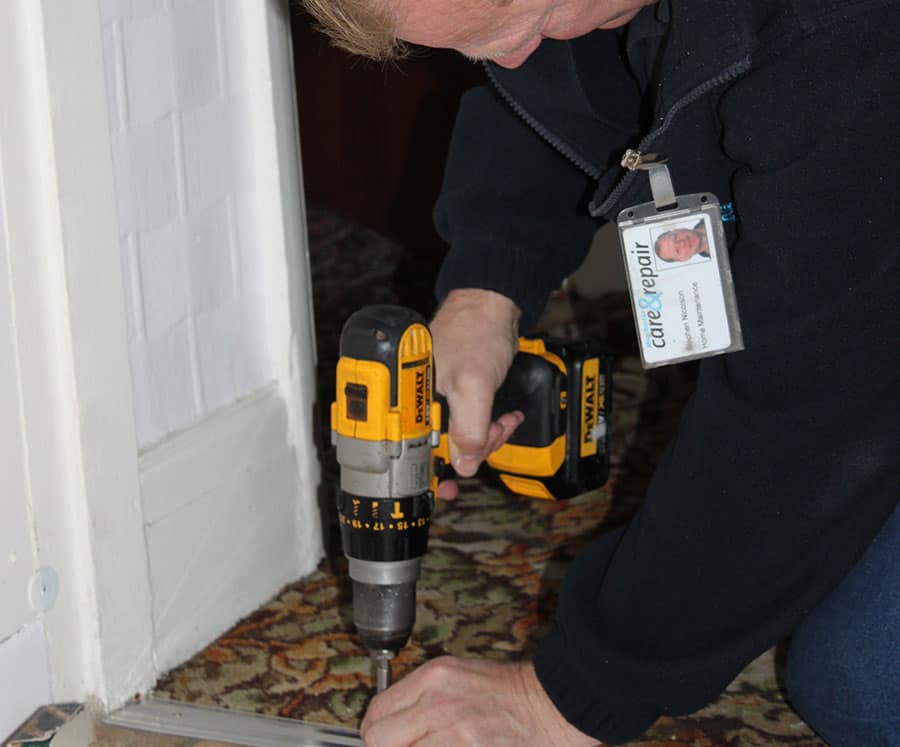Study reveals vital role Handyperson Services play in keeping people living independently

A new report emphasising the pivotal role council-commissioned Handyperson Services play in keeping vulnerable people living independently warns that those providing the services as facing multiple challenges to “survive and thrive.”
According to the study published by Foundations, the national body for Home Improvement Agencies in England, Handyperson Services carry out a varied range of tasks for councils, including home safety checks, adaptations and helping people access assistive technology.
Described as the ‘eyes and ears’ of communities, the study notes that these tradespeople are often the first ‘public service’ that vulnerable householders will call as they do not have the same stigmas or fears associated with them that other social services have.
The research findings reveal 54 per cent of local authorities either deliver or commission Handyperson Services, with 41 per cent of services providing labour and some materials free of charge.
Additionally, 45 per cent of Handyperson Services aid timely discharge from hospital, including ensuring the person’s home is safe and fully equipped for them to return to.
With over half of local authorities relying on Handyperson Services, Foundations states that the tradespeople’s added-value must be recognised if they are to survive and thrive.
It comes as Handyperson Services across England face multiple challenges, including a complex commissioning environment and the growth of the gig economy.
Despite providing a wide range of services, from fitting grab rails to removing trip hazards, the report highlights that the full scope of interventions needed is rarely covered by one local commissioner.
Any provider wishing to develop a local service will often have to tender for many small value contracts let by several different public bodies.
According to the study, this results in Handyperson Services finding themselves delivering different contracts with varying terms and conditions and being able to carry out multiple tasks at the same time.
“This creates a tension, which can lead to compromises for either the provider or the commissioner,” adds the report.
“The answer is to put a realistic value on the added value – and to pay for it.”
Paul Smith, Director of Foundations, comments: “In many ways, handyperson services are our unsung heroes. For more than a quarter of a century, they have been at the forefront of keeping people safe and helping them to access a wide range of support. They play a vital role in prevention and early intervention, often acting as trusted eyes and ears in the community.
“But in a fast-changing environment – in particular, the growth of the gig economy – the challenge now is to ensure handyperson services remain at the forefront and are fully embedded in the preventative agenda through strategic commissioning.”
The report concludes that the inclusion of Disabled Facilities Grant in the Better Care Fund means there is a mechanism to improve the commissioning and targeting of Handyperson Services.
“[It] provides a means to jointly agree plans across housing, health and care and the focus on reducing delayed transfers of care, avoidable admissions and the number of people going into residential care provides a driver to commission preventative services targeted at those most in need – whether they are in hospital or at risk in the community.”
Case study examples of Handyperson Services’ added value
- Middlesbrough Staying Put, run by Middlesbrough Council, has trained staff in its Middlesbrough Mobile Adapt and Mend Service (MMAMS) to complete a preliminary wellbeing assessment. This leads to other services being requested which can be booked at the time using an app.
- County Durham Handyperson Service has supported over 77,710 customers and delivered over 136,000 tasks over the last 10 years. It estimates that every £1 invested in their service realises approximately £2.64 in costed benefits, equating to more than £1m of savings for health and social care.
- Manchester Care & Repair reports that 90 per cent of initial assessment visits from its Handyperson Service resulted in an onward referral for another service, with all operatives trained in how to deliver a comprehensive assessment for home safety and security.


